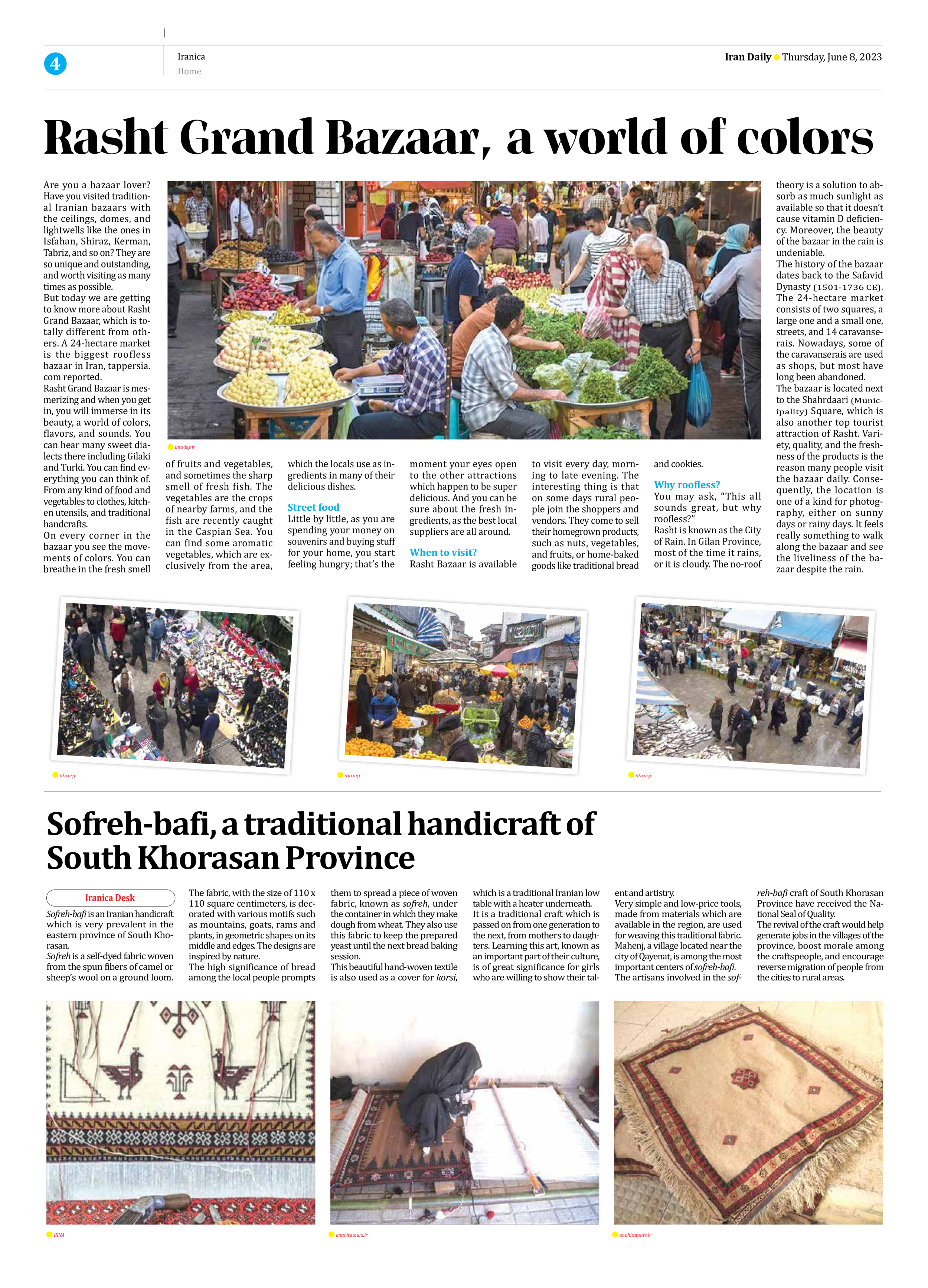
Sofreh-bafi, a traditional handicraft of South Khorasan Province
Sofreh-bafi is an Iranian handicraft which is very prevalent in the eastern province of South Khorasan.
Sofreh is a self-dyed fabric woven from the spun fibers of camel or sheep’s wool on a ground loom. The fabric, with the size of 110 x 110 square centimeters, is decorated with various motifs such as mountains, goats, rams and plants, in geometric shapes on its middle and edges. The designs are inspired by nature.
The high significance of bread among the local people prompts them to spread a piece of woven fabric, known as sofreh, under the container in which they make dough from wheat. They also use this fabric to keep the prepared yeast until the next bread baking session.
This beautiful hand-woven textile is also used as a cover for korsi, which is a traditional Iranian low table with a heater underneath.
It is a traditional craft which is passed on from one generation to the next, from mothers to daughters. Learning this art, known as an important part of their culture, is of great significance for girls who are willing to show their talent and artistry.
Very simple and low-price tools, made from materials which are available in the region, are used for weaving this traditional fabric.
Mahenj, a village located near the city of Qayenat, is among the most important centers of sofreh-bafi.
The artisans involved in the sofreh-bafi craft of South Khorasan Province have received the National Seal of Quality.
The revival of the craft would help generate jobs in the villages of the province, boost morale among the craftspeople, and encourage reverse migration of people from the cities to rural areas.







